
Getting Started in the Mobile Oil Change Industry: Lube Skids & Trailers
Jan 20, 2021 -- Posted by :With the new year behind us, many business owners and lube truck operators are looking towards opportunities in 2021 – including additional income and/or servicing their own equipment. But knowing where to start can prove tricky. Do you go all-in with a mobile lube truck? How do you know which products you need, or how many, or how much volume to keep in the tanks? These questions quickly grow into internal conversations about costs, timelines, and personnel options – easily becoming overwhelming, leaving you frustrated and behind schedule.
That’s where Taylor Pump and Lift steps in.
Part of our process is assessing your business needs with granular precision. This includes reviewing your budget, and determining which piece of mobile lube equipment best fits both your functional and financial needs. We pledge to never sell you a product that you don’t need by modifying our existing lube skid or fuel/lube truck layouts, if necessary.
For those on a tight budget or with smaller fleets, our standard lube skids and lube trailers offer functionality without the high price tag of a lube truck. These options offer security while on the job site, the convenience of being transported with a standard pickup truck, and compact footprints that don’t sacrifice ergonomics or product volumes.
Branching out into servicing your own equipment or offering mobile lube services can be stressful, but it doesn’t have to be daunting. At TPL, we’re here to help better your business.
Interested in our help? Contact us here, and we’ll get back with you ASAP!

More Recent Posts
Why Your Grease Pump Isn't Working - A Guide
As 2024 rolls in and we all get back into our routines, it’s common to encounter equipment issues leftover from December. But now, that malfunctional grease pump is slowing – or even halting – your work day. The result is operational downtime, which can put a damper on even the best New Year’s resolutions. Our short guide to diagnosing your grease pump problems can help.
Why TPL Lube Trucks Are The Most Reliable
When you have a lube truck, skid, or system, reliability is a product characteristic that isn’t just expected – it’s non-negotiable. Your fluid exchange equipment needs to work reliably. But what does that mean? Learn three, simple ways that TPL lube trucks (and other lube equipment) are the most-reliable in the industry.
The Four Main Components You Should Be Checking: A Parts Maintenance Guide
While it may seem counterproductive to put extra time towards equipment maintenance, performing regular service on your equipment parts is vital to keep them running effectively and efficient during peak production seasons. Check out our Parts Maintenance Guide for more.

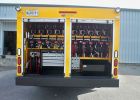 Lube Trucks
Lube Trucks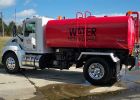 Water Trucks
Water Trucks Fuel Lube Trucks
Fuel Lube Trucks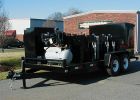 Lube Trailers
Lube Trailers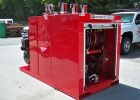 Lube Skids
Lube Skids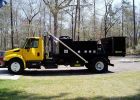 Hook Lift Package
Hook Lift Package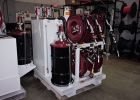 On-Demand Inventory
On-Demand Inventory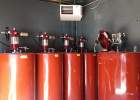 Lubrication System Installations
Lubrication System Installations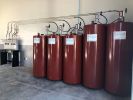 Tank Packages
Tank Packages Truck Restoration
Truck Restoration Lift Installations
Lift Installations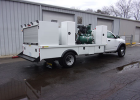 Truck Repair
Truck Repair System Repairs
System Repairs Our Team
Our Team Careers
Careers TPL Media
TPL Media
